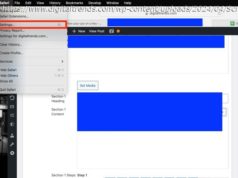In the 5-4 decision, the highest court in the United States determined that police departments across the nation must first attain a search warrant before tracking mobile device users. This decision could have enormous implications, given that around 95 percent of Americans have a cell phone.
Privacy has emerged victorious in Washington, D. C, where the U. S. Supreme Court ruled on Friday, June 22 that police generally must obtain a judge’s permission before obtaining cell phone records to track individual customers. In the 5-4 decision, the highest court in the United States determined that police departments across the nation must first attain a search warrant before tracking mobile device users. This decision could have enormous implications, given that around 95 percent of Americans have a cell phone.
Chief Justice John Roberts authored the court’s opinion, and noted, “A phone goes wherever its owner goes, conveying to the wireless carrier not just dialed digits, but a detailed and comprehensive record of the person’s movements.”
How exactly does this work? Anytime you receive or send a text message or a call, your phone sends a signal to a cell tower in order to connect you with the telephone network. As you move, the signal moves with you from tower to tower, and cell phone companies keep logs of the phone numbers that are sent through each tower in order to determine billing questions like roaming charges. Of course, in the hands of law enforcement agencies, this information can also map out a person’s movements with great detail over an extended period of time.
The Supreme Court made a couple of exceptions to its general warrant rule, so police will still be able to obtain phone records without a warrant in emergency situations including the need “to pursue a fleeing suspect, protect individuals who are threatened with imminent harm, or prevent the imminent destruction of evidence.”
The case was brought to the Supreme Court by a man named Timothy Carpenter, who was accused of robbing a number of Radio Shack and T-Mobile stores after the FBI leveraged three months’ worth of cell phone records to prove that he was in the vicinity of the stores during the crimes. Carpenter claimed that because the FBI never had a search warrant, this evidence and his conviction could not stand.
The Justice Department and lower courts urged the Supreme Court to rule against Carpenter, with the Trump administration’s legal brief on the matter reading, “Cell phone users voluntarily reveal to their providers information about their proximity to cell towers so the providers can connect to their calls. Users cannot reasonably expect that the providers will not reveal that business information to the government.” The Supreme Court, however, disagreed.






